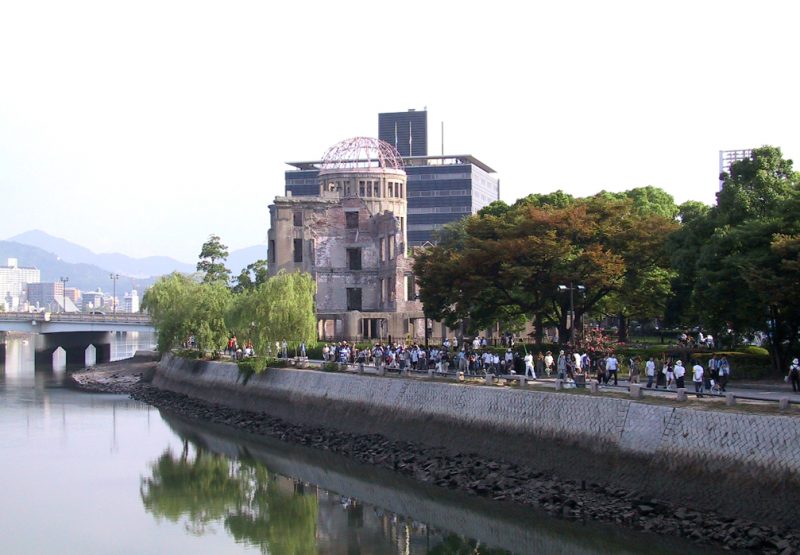President Barack Obama will visit Hiroshima during a trip to Japan and Vietnam this month. He will be the first sitting U.S. president to visit the Japanese city since the U.S. dropped an atomic bomb on it in 1945. The trip will take place from May 21-28.
The Atomic Bombings of the populous cities of Hiroshima and neighbouring Nagasaki mark the only use of nuclear weapons in the history of war. At least 129,000 people, mostly civilians, died in the initial strikes and the following days, but the effects have been felt for months and years after, and the indirect death toll attributed to the bombings is much, much higher.
The White House has stated that the president will not apologize for the bombings as part of this trip. The statement given by Obama’s press secretary read, “The President will make a historic visit to Hiroshima with Prime Minister [Shinzo] Abe to highlight his continued commitment to pursuing peace and security in a world without nuclear weapons.”
The president’s communications adviser, Ben Rhodes, said that Obama would “not revisit the decision to use the atomic bomb at the end of World War II. Instead, he will offer a forward-looking vision focused on our shared future”. He said the visit would “offer an opportunity to honor the memory of all innocents who were lost during the war”.
Mr. Rhodes added, “The President and his team will make this visit knowing that the open recognition of history is essential to understanding our shared past, the forces that shape the world we live in today, and the future that we seek for our children and grandchildren.”
Though the President will not apologise for the actions of the past, he is expected to make a speech supporting a world free of nuclear weapons, which Japanese President Shinzo Abe supports too.
Obama will be taking part in the G7 summit being held in Japan’s Ise-Shima peninsula. There, he will hold bilateral talks with Abe. Before that, Obama will meet with the leaders of Vietnam and give a speech in Hanoi about U.S.-Vietnam relations.
Jimmy Carter had visited Hiroshima, but that was after his term as president had ended. The first time a U.S. ambassador attended the annual commemoration in Hiroshima was 2010.
The bombings of Hiroshima and Nagasaki will be remembered in history for the incredible loss of civilian life, and the swift surrender of Japan which followed. No doubt the issue of whether the US was justified in making the strikes will continue to be a matter of debate, but, on this trip, it seems that the President of the USA is going further to acknowledge the horror of the attack than any US President has done before now.
